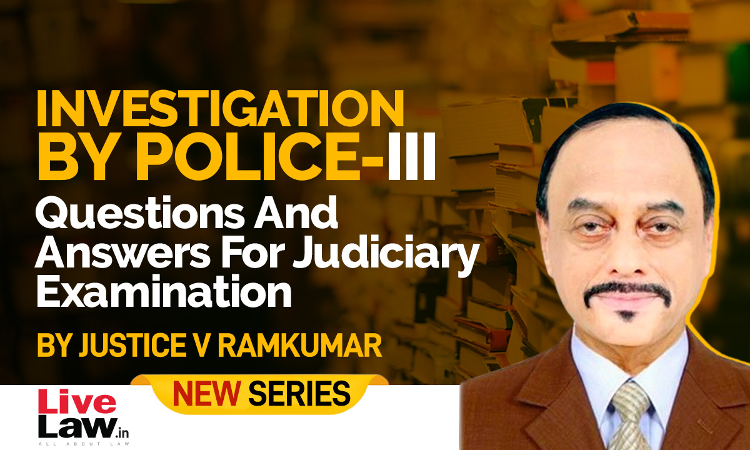NEW SERIES- Questions And Answers For Judicial Service Examinations(3)- By Justice V. Ramkumar
Justice V Ramkumar
7 Nov 2022 5:14 PM IST

Next Story
7 Nov 2022 5:14 PM IST
A1. INVESTIGATION BY THE POLICE – Part III Q.11 Is the "informant" entitled to a free copy of the information as recorded by the SHO under Section 154 (1) Cr.P.C. ? Ans. Yes. A copy of the information recorded should be given forthwith to the informant free of cost. (Vide Section 154 (2) Cr.P.C.). This provision is directory and not mandatory. Hence, non-compliance of...
